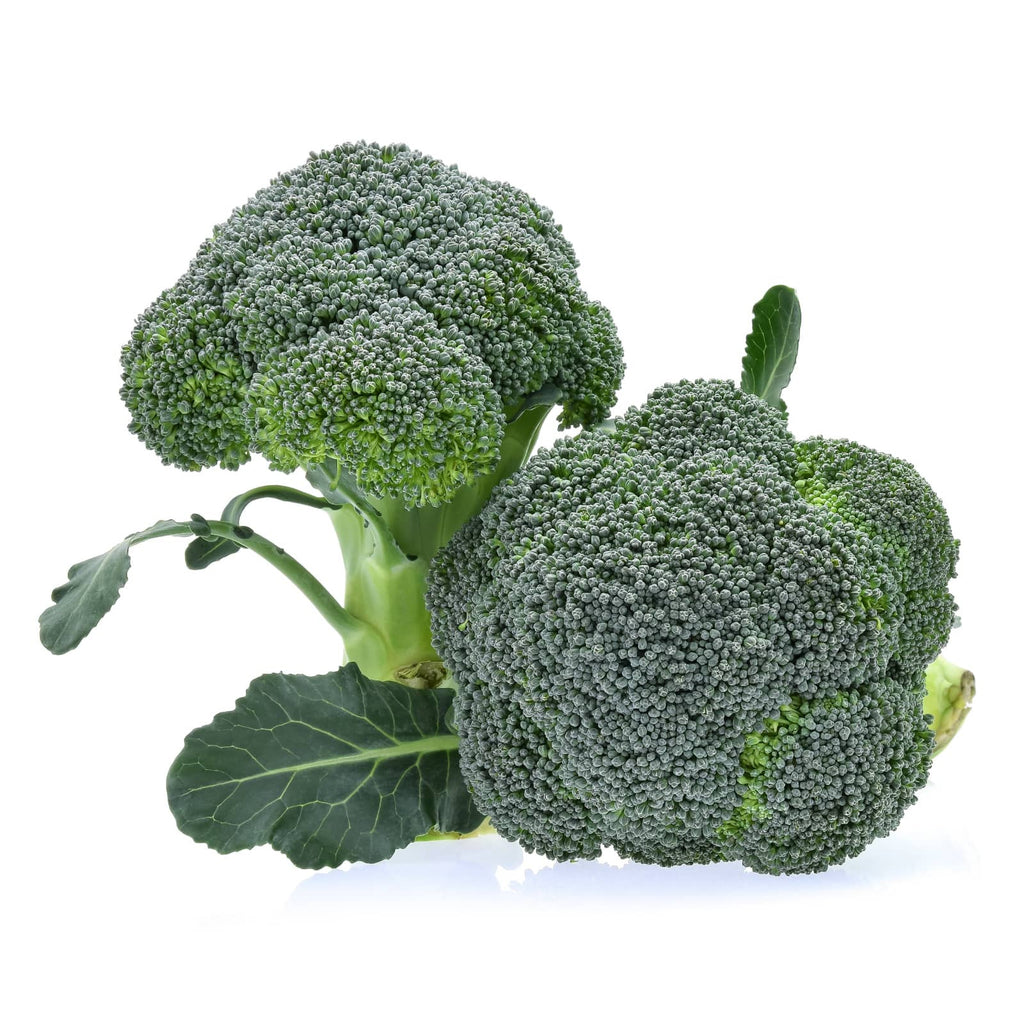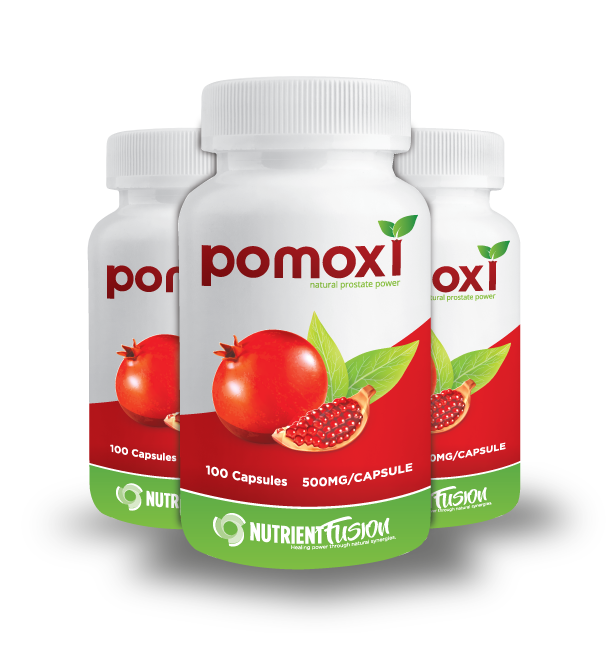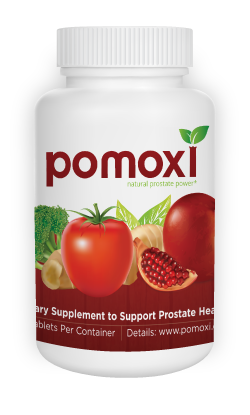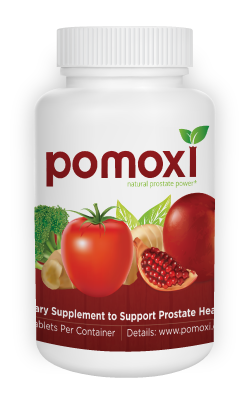Broccoli
A famously healthy vegetable that boasts many wellness benefits.

Subscribe and Save 15%
BUY NOW
The Science of Broccoli
The health effects of Broccoli and its extracts is due to several nutrients, the main one being sulforaphane. Sulforaphane is a potent inducer of several liver phase II enzymes that detoxify toxins in the diet by binding them to Glutathione, rendering them harmless. Sulforaphane and Broccoli extract induces these enzymes inside the prostate gland (1) Sulforaphane and Broccoli extract also increase levels of Glutathione itself, the key antioxidant in prostate cells that protects them against free radicals and toxins. (1)
Several studies have found strong associations between good prostate health and high consumption of cruciferous vegetables which contain sulforaphane and other phase II enzyme inducers. (2, 3)
Sulforaphane and other Broccoli components leads to the activation of genes involved in cellular defense and survival that are found in prostate cells which leads to better prostate health. (4, 5)
Pomoxi’s Broccoli extract contains antioxidants, sulforaphane and other natural compounds that support good prostate health by inducing phase II health-promoting enzymes and the expression of health-related genes.
Broccoli holds the most evidence and promise for prostate health, having the highest concentrations of sulforaphanes and considerable amounts of erucin among all cruciferous vegetables.
In one study, men that consumed over one serving of broccoli for just one week experienced more benefits, compared to men who ate less than one serving per month.
What is Broccoli?
Broccoli boasts many wellness benefits. It’s rich in vitamins, minerals, and unique phytonutrients – some of these being wonderfully beneficial for prostate health.
Broccoli belongs to the family of vegetables called “brassicas” or “cruciferous” vegetables – a family that also includes kale, cabbage, and radishes.
Broccoli may have the most potential of all these foods.
Research shows that regular consumption of this vegetable may support prostate health.
Broccoli’s Compounds
Broccoli and other cruciferous vegetables are exceptional for their special profile of vitamins, minerals, and phytonutrients.
Broccoli contains:
- Vitamins A, B, C, and K
- Minerals (potassium, manganese, phosphorus)
- Protein
- Fiber
- Omega-3 Fatty Acids
- Phytonutrients (sulforaphanes, erucin)
This flowering vegetable’s nutritional content altogether make for an excellent supporter for prostate health. Vitamins A and C are antioxidants, while omega-3 fatty acids are important nutrients for whole-body health.
However, it is broccoli’s compounds – sulforaphane and erucin – that hold the most promise for prostate health, and which can only be obtained straight from the plant (as well as other relatives, including cauliflower and Brussels sprouts).
Sulforaphanes
These are sulfur-derived compounds, found only within cruciferous vegetables, and purported to be highest in broccoli and cauliflower – particularly the young sprouts.
However, typical doses of the compound through food or supplement aren’t enough. This has incited more study for higher potency extractions and doses of the compound for a better affect on your health.
Erucin
Erucin is named after arugula or rocket, Eruca sativa, which contains the highest amounts of this compound over any other cruciferous vegetable. Kohlrabi and Chinese cabbage are also great sources, but broccoli is a great source of erucin as well.
Scientific studies have shown that erucin has strong prostate-supporting potential.
Food versus Supplement
The Western diet advocates 3 to 5 servings of vegetables per day for optimum health. However, this diet tends to be higher in carbs, meat, and dairy compared to veggies – and many people who consume the typical Western diet struggle with getting adequate amounts of veggies into their diet.
Furthermore, studies have shown that broccoli's health benefits are observed when it is consumed in high quantities: from 400 up to even around 900 mg, which far exceed the maximum recommended servings of veggies (about 375 mg).
Because of its incredible health benefits, considering a potent supplement form of broccoli in addition to a veggie-rich diet can be the most effective way to get its phytonutrients for prostate health.
Using Broccoli
Consuming high amounts of broccoli or broccoli-sourced sulforaphanes as therapy shows no harmful side effects. Increasing the amount of broccoli eaten in the diet, along with consumption of a broccoli-sourced supplement, can be a very helpful strategy for promoting prostate health.
Talk to your doctor about using Pomoxi, a versatile, natural supplement containing ingredients and compounds clinically demonstrated to have health benefits.
References
1. Brooks, JD, Paton, VG, Vidanes, G. Potent induction of phase 2 enzymes in human prostate cells by sulforaphane. Cancer Epidemiol Biomarkers Prev. 2001 Sep;10(9):949-54.
2. Cohen J. H., Kristal A. R., Stanford J. L. Fruit and vegetable intakes and prostate cancer risk. J. Natl. Cancer Inst. (Bethesda), 92: 61-68, 2000.
3. W Watson G, M Beaver L, E Williams D, H Dashwood R, Ho E. Phytochemicals from cruciferous vegetables, epigenetics, and prostate cancer prevention. AAPS J. 2013 Oct;15(4):951-61.
4. Guerrero-Beltran CE, et al. Protective effect of sulforaphane against oxidative stress: recent advances. Exp Toxicol Pathol. 2012; 64(5):503–8.
5. Singh SV, et al. Sulforaphane-induced G2/M phase cell cycle arrest involves checkpoint kinase 2-mediated phosphorylation of cell division cycle 25C. J Biol Chem. 2004; 279 (24): 25813–22.


